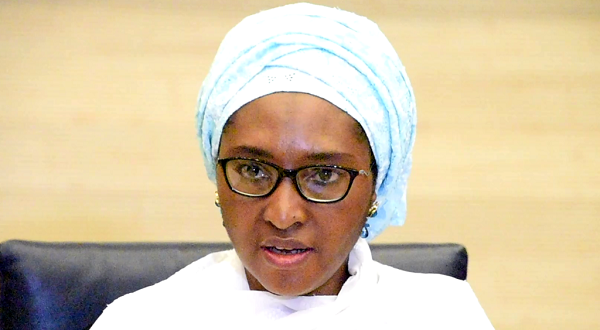Business
Nigerian govt to borrow N9.32tn for 2023 budget deficits

The Federal Government will once again depend heavily on domestic and foreign creditors in 2023, as the Minister of finance, budget and national planning, Zainab Ahmed, said next year’s budget will have a projected deficit of N12.41 trillion.
Ahmed explained that the deficit was projected if the government plans to maintain the petroleum subsidy throughout next year, but in the case the government ends the subsidy payment by June 2023, the budget deficit is estimated at N11.30 trillion.
She made the projection known to the House of Representatives Committee on Finance while defending the 2023-2025 Medium Term Expenditure Framework (MTEF) and Fiscal Strategy Paper (FSP) on Monday.
The minister said the government has two options; the first being the federal government spending N6.72 trillion on subsidy payments if the subsidy is kept for the 2023 fiscal cycle, during which the deficit is projected at N12.41 trillion.
The deficit represents 196 percent of total revenue or 5.50 percent of the estimated Gross Domestic Product (GDP), which surpasses the threshold in the Fiscal Responsibility Act. It is also above the N7.35 trillion budgeted in 2022.
Disclosing the other option available to the Federal Government, Ahmed said subsidy payment will cost a projected N3.3 trillion if subsidy payments last till June 2023, as the budget deficit projected for half year subsidy payment is N11.30 trillion. This is N5.01 trillion of the estimated GDP.
Read also: 2023 BUDGET: Nigerian govt projects N8.52trn for staff salaries, others, Presidency gets N14.2bn
According to Ahmed, the second option is more realistic, but requires tighter enforcement, while the first is likely unachievable due to the current oil price upward trend.
To finance this deficit, the minister explained that N7.4 trillion will be borrowed from domestic sources, while foreign sources will account for N1.8 trillion loan, making up the N9.32 trillion new borrowings.
With the rest of the capital needed to fund the deficit coming from about N206.1 billion expected to be generated from privatisation proceeds, as well as multilateral project-tied loans worth N1.7 trillion.
Considering the two budget deficits is above the stipulated threshold in the Fiscal Responsibility Act, which requires below 3 percent, Ahmed said threat to national security or sovereignty of Nigeria affords the president to exceed the ceiling.
Join the conversation
Support Ripples Nigeria, hold up solutions journalism
Balanced, fearless journalism driven by data comes at huge financial costs.
As a media platform, we hold leadership accountable and will not trade the right to press freedom and free speech for a piece of cake.
If you like what we do, and are ready to uphold solutions journalism, kindly donate to the Ripples Nigeria cause.
Your support would help to ensure that citizens and institutions continue to have free access to credible and reliable information for societal development.






















